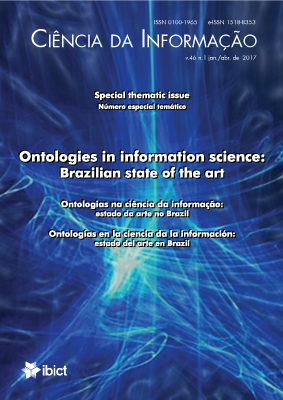Metrics and methods for comparative ontology evaluation
DOI:
https://doi.org/10.18225/ci.inf.v46i1.4012Keywords:
Ontologies, Ontologies EvaluationAbstract
While progress has been made toward describing the need for ontology evaluation and offering proposals concerning what properties to measure and how, work remains to develop ontology evaluation as a rigorous discipline. Ontologies as information artifacts have a variety of aspects that can inform their evaluation, both in terms of what is evaluated and the metrics used. Ontology evaluation as a discipline requires (1) having a systematic account of the different aspects of ontologies and the properties relevant to those aspects, (2) critically developing methods for examining those properties, (3) developing comparative metrics that allow ontology engineers to compare the effects of various modeling choices and allow users to compare the merits of existing ontologies, and (4) charting possible pitfalls of evaluation. This paper considers various properties of ontologies that have been proposed and organizes these properties according to different aspects of ontologies. To begin bringing previous work together and to illustrate where pitfalls and potential solutions might enter into a rigorous evaluation, I offer a more in depth (though still partial) analysis of evaluating the correctness of ontologies. I conclude with a discussion of next steps in systematizing ontology evaluation.Downloads
Download data is not yet available.
Published
28/12/2017
Issue
Section
Parte I - Contribuições teóricas e metodológicas da pesquisa sobre ontologias
License
- This publication reserves the right to modify the original, regarding norms, spelling and grammar, in order to maintain the standards of the language, still respecting author writing style;
- The final proofs will not be sent to the authors;
- Published works become Ciência da Informação's property, their second partial or full print being subject to expressed authorization by IBICT's Director;
- The original source of publicaton must be provided at all times;
- The authors are solely responsible fo the views expressed within the article;
- Each author will receive two hard copies of the issue, if made availalbe in print.




























